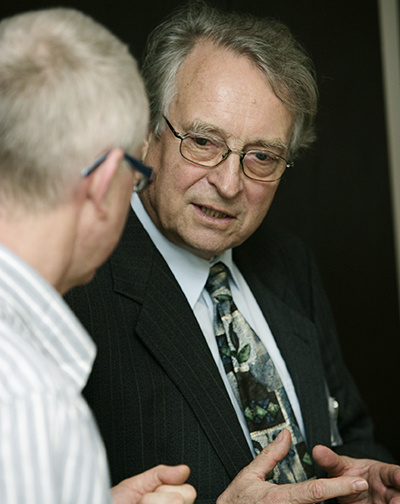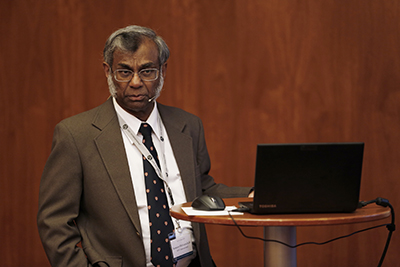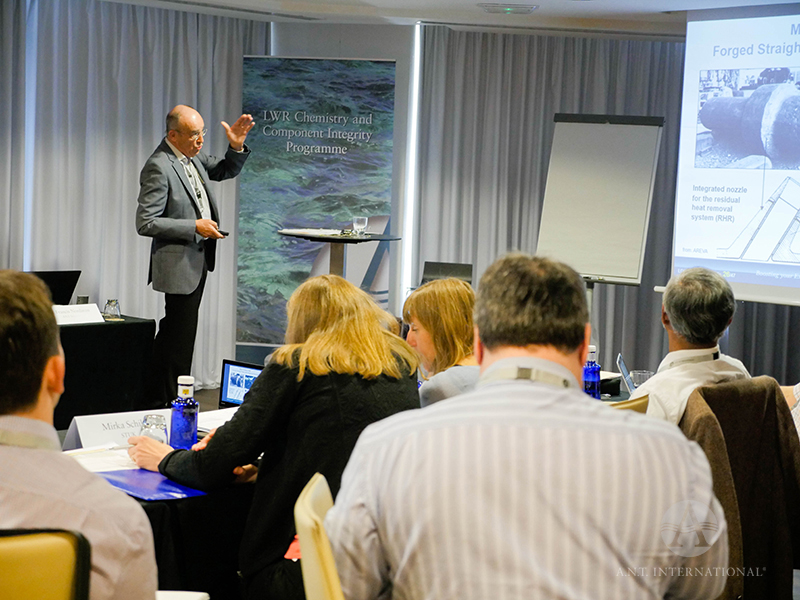The Experts of ANT International will be very happy to provide education and training on these subjects, at any level, depending on requests. Provide an independent evaluation of reports or analysis to provide a a second opinion of suggestions or recommendations made by others and, provide technical support services (reports, seminars, workshops) in the following areas:
Fuel Design/Accident Tolerant Fuel/Manufacturing/In-reactor Performance/Interim Dry Storage
- Basic Zr Knowledge
- Metallurgy of fuel cladding and bundle hardware
- hydrogen – solubility limits, diffusion, mechanical properties including DHC and embrittlement, mitigation;
- – mechanical properties – including tensile, hardness, fracture toughness testing;
- – surveillance of components;
- Fuel Design and Manufacturing
- Fabrication, properties and performance of zirconium alloys
- Fabrication, properties and performance of high strength nickel alloys and stainless steels,
- Fabrication, properties and performance of control rod absorbers and burnable absorbers
- Fabrication and performance of fuel and control rod assemblies
- Relationship of water chemistry with zirconium and structural material performance
- Fabrication of components – fuel cladding, pressure tubes and calandria tubes including development of microstructure.
- Fuel fabrication audit
- In-reactor Performance During Normal Operation, Anticipated Operational Occurrences and Design Basis Accidents
- Fuel Reliability
- Fuel Channel/Assembly bowing
- Irradiation creep and growth
- Corrosion and hydrogen pickup
- Pellet cladding interaction
- Fuel Performance During Interim Dry Storage and Cask Transport
- Testing/Examinations
- Mechanical testing of un-irradiated and irradiated components
- PIE of irradiated components
- Root cause investigation for failure of in-reactor components
- Testing and irradiation planning for development of new alloys for in-reactor use
- Planning and execution of irradiation experiments; and PIE of irradiated coupons/samples
- Fuel Development
- Development of Enhanced Accident Tolerant Fuels (eATFs)
- Planning/measurement/analysis of neutron activation detectors for flux/fluence/energy spectrum measurements

BWR Chemistry and Corrosion
- Hydrogen water chemistry (HWC) implementation, HWC benchmark test design and data evaluation
- NMCA and OLNC implementation, SCC mitigation effectiveness and data evaluation
- Implementation of Non-hydrogen Technologies for SCC Mitigation and Their Effectiveness
- Impact of Water Chemistry Transients on SCC Mitigation Effectiveness and Root Cause Analysis
- ECP Sensor Performance, ECP Data Evaluation, ECP Trouble Shooting and Mitigation Effectiveness
- BWR Shutdown/Drywell Dose Rates, Iron and Zinc Control for Effective Dose Rate Mitigation
- Water Chemistry and Crud Impact on Fuel Performance & Fuel Failure Root Cause Analysis
- BWR Decommissioning and Decontamination Approaches Leading to License Termination

PWR and VVER Chemistry and Corrosion
- Primary Chemistry
- Radiochemistry
- Primary system zinc addition
- Post-accident sampling systems (liquid)
- Forced oxidation (crud burst)
- Macroporous resins (specialty)
- Secondary Chemistry
- Steam generator chemical cleaning
- Secondary side dispersants
- Steam general fouling
- Steam generator layup
- Chemistry Management and Self Assessments
- Chemistry organisational management
- Self-assessment planning and execution

BWR and PWR Material Degradation
- NSSS Components and Materials Field Experience;
- Low alloy pressure vessel steels, steam generator shells and secondary piping of nuclear power stations and other non-nuclear structures,
- Nickel base alloys used for steam generator tubes and various dissimilar metal junctions between low alloy steels and stainless steels mainly in the primary circuits of PWRs,
- Stainless steels of primary piping and highly irradiated internal PWR core support structures,
- Assistance in resolving corrosion problems in the structural components of PWR fuel assemblies,
- High strength alloys used for springs, bolts and valve stems
- SCC Mitigation
- Source Term Reduction (Material Side)

